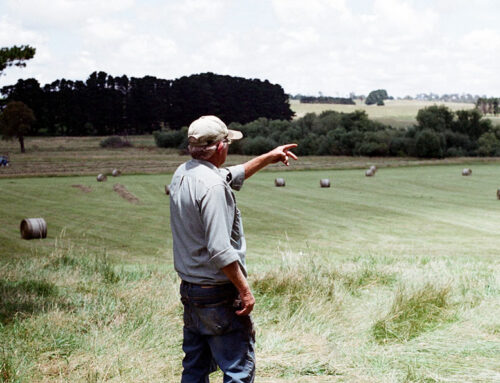Taxpayers for Common Sense co-authored a paper with the Heritage Foundation imploring Congress to rein in the ever-expansive “Charter Act” authority of the Secretary of Agriculture. Through section 5 of the Commodity Credit Corporation (CCC) Charter Act, adopted in 1948, Congress provided the Secretary nearly limitless power to spend taxpayer dollars to “assist” agriculture. Specifically, Congress allowed the Secretary to support agricultural commodity prices, procure and remove surplus commodities, expand markets, aid in the export of commodities, and administer conservation programs under the authority of the CCC.
The CCC is, in effect, controlled by the U.S. Department of Agriculture (USDA). In 1948, the CCC became a federal corporation within USDA. Everyone from its board of directors – which is made up of the Secretary of Agriculture himself, plus seven other USDA officials – to its own employees are staff with USDA day jobs. The Secretary of Agriculture sits at the CCC’s helm, thus wielding significant power over its direction and use of taxpayer dollars.
While CCC authority has generally been used in the past to dispense funding authorized specifically by Congress, the last three years were an anomaly. Using CCC funds in 2018 and 2019, the Trump Administration used broad discretion to funnel $28 billion in taxpayer dollars to the agriculture sector in the name of a trade war. This taxpayer spending was on top of “normal” farm program and conservation program subsidies that Congress already authorized in the farm bill (which are expected to average approximately $9.5 billion over the next decade), not to mention crop insurance subsidies and tens of billions more in COVID-19-named relief as well. Unfortunately, this was not the first time a Secretary of Agriculture used CCC funding for pet projects without Congressional approval (both USDA Secretaries Tom Vilsack and Sonny Perdue, serving under Presidents Obama and Trump, respectively, unilaterally used CCC funds for special interest biofuels infrastructure projects). However, the sheer size of the trade war bailout was enough to make taxpayers’ stomachs turn.
Speaking of special interests, the ag lobby and certain lawmakers are attempting to use the trade war precedent to call for the Biden Administration to use this authority to permanently increase the size and reach of farm subsidies (as if the current, expansive and expensive farm safety net wasn’t enough). These interests seek to increase the Secretary of Agriculture’s power to circumvent Congress and instead use the CCC to implement a number of policy priorities from climate change mitigation to increased disaster aid. Doing so could permanently cement recent unprecedented farm safety net spending (or worse, increase it) and extend farm subsidies to new beneficiaries far from the farm gate. In addition, by shifting power to design the farm safety net from Congress to the Executive Branch, proposals to expand the CCC authority threaten the stability and predictability that farming and ranching businesses need to make long-term investments in their operations.
Vesting increased power in the Secretary of Agriculture undermines bipartisan efforts to create a more cost-effective farm safety net focused on managing risk and promoting resilience instead of maximizing government payments for the politically favored. Particularly with the next farm bill authorization on the near horizon, Congress should play a more active role in these debates, insisting that future agriculture policy and taxpayer spending decisions rightfully fall in its hands instead of current and future Administrations with varying policy priorities.
Read the full paper here.











Get Social